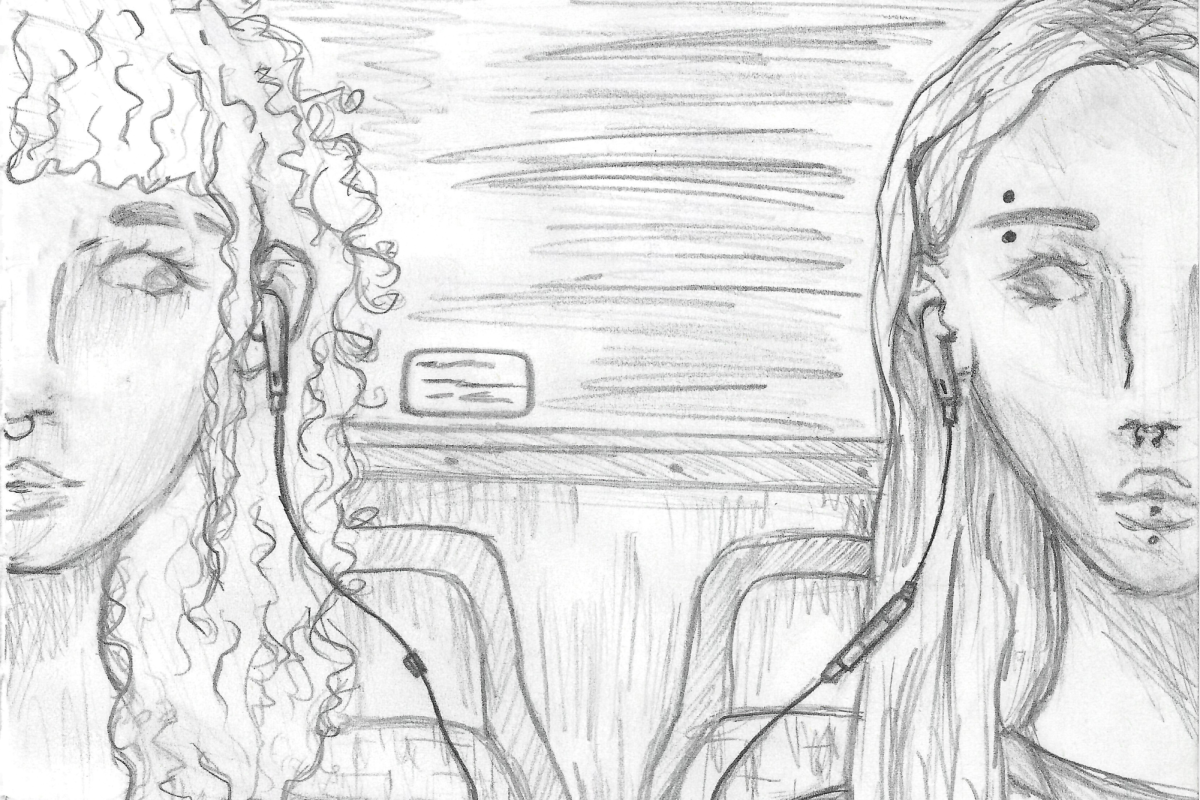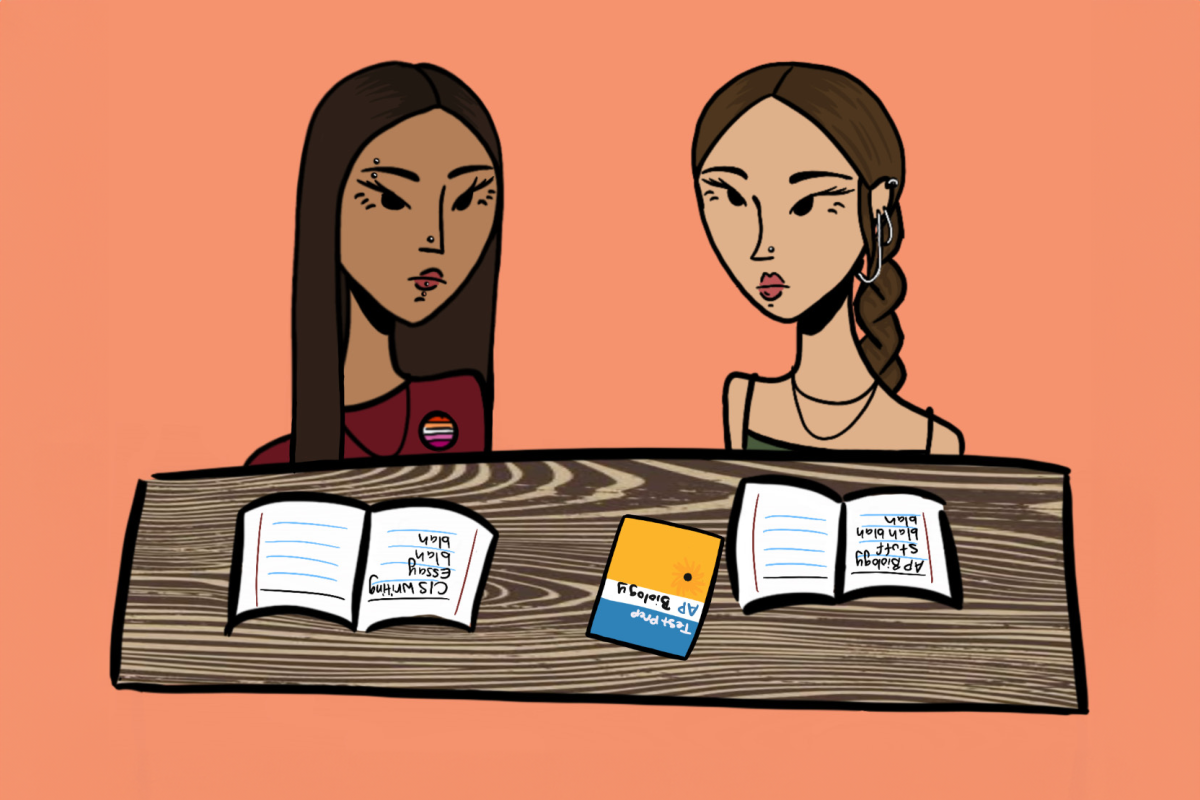In an informal survey conducted during third lunch, I asked 70 South students what the first characteristic or word that came to mind when I mentioned “feminists.” Overwhelmingly, I got answers like “passionate,” “angry,” and “lesbian.” Some didn’t even recognize the term. Most of the boys, when asked, chuckled ruefully, while many of the girls seemed put off by these radical women. But why?
I consider myself a feminist, and I have since I was quite young. It wasn’t a conscious decision, rather it stemmed from my enjoyment in finding that I could speak up for myself. So, as a vocal feminist, the response I got from talking to kids here concerned me.
To me, feminism has always been a positive, helpful factor in my life. Growing up in an extremely socially liberal area of the country, I never understood why anyone would dislike it, or find it a tainted word. I see now that the main reasons feminism has become this vilified practice are its negative stereotype, the lack of knowledge about feminism, and our culture, in which saying you are a feminist has become a radical thing. Here’s why I think feminism is the best F-word I’ve ever heard.
A feminist is a white, angry, hairy woman, who burns her bra and rails against the patriarchy, crying for the downfall of men. Right? Not so much. Feminists come in all different shapes, sizes, and yes, levels of body hair. Additionally, a woman can be “feminine” and not undermine her feminist standing. This is impossible to tell from mainstream media, our curriculum, or even our culture at large, however. One important piece of breaking the negative stereotype is fixing the “straw feminist.”
The “straw feminist” is a TV trope, or a commonly used convention, in which a feminist is put into a show, and then is used as a device to criticize feminism. These characters are the irrational, laughable women who fight male conspiracies rather than help out in efforts for equality, and you can see them everywhere from the Powerpuff Girls to Legally Blonde (media that is, interestingly enough, geared toward young girls and women).
The straw feminist exists, just as extremists exist in any group (although the bra-burning stuff is actually an urban legend). However, the hatred of men and the tired trope shouldn’t be the face of the feminist movement.
Feminism is inherently about equality. I had a startling number of people tell me that they’re not a feminist, but rather they’re “an equalist.” I didn’t know they were different things, and someone’s going to have to explain the difference to me. I say this because Merriam-Webster’s definition of feminism is “the theory of the political, economic, and social equality of the sexes.” Feminism is founded of the belief that all people are equal, and should be treated that way.
Equality is what brings me to my second point, which is that feminism is still a relevant and necessary movement. When I talked to South students, I heard a lot of kids tell me that they thought women were pretty much equal to men, and that feminism had little to work for now. Here’s where it’s easier to let numbers make the argument. Of the world’s 1.3 billion poor people, the UN has estimated that about 70% are women. It further estimates that there are 130 million children who do not attend school, and about 2/3 of them are girls. Finally, in the entire world, women hold only 11.7% of the seats in all parliaments.
These statistics are indisputable, but I understand that sometimes it’s easy to feel disconnected from them. It’s easier to imagine things closer to home. According to government reports at of the end of 2011, women working full-time jobs in the US made only 77% of what men earned. Let’s get even more relatable. Studies from the group Hollaback! show that up to 99% of American women experience street harassment (wolf whistling, catcalls, leering, etc.) at least once in their life. Ask any girl, and even a guy, you know, and they’ve most likely had at least one interrupted walk down the street. One out of every 6 American women has been the victim of an attempted or completed rape, and 9 out of 10 rape victims in the US are women. Let me know if you still aren’t sure we need to keep working for women’s rights.
Finally, feminism has become such a negative, dirty word because of the culture in which we live. Kim Allen, a researcher from the London Metropolitan University, describes it perfectly as “a ‘post-feminist’ culture which penalizes women and girls for daring to object to misogynistic views or gender discrimination.” With all the strides society has made over the past few decades, women who point out continuing problems are made to feel like a nuisance and a killjoy.
Teens and young women don’t even want to be associated with the term feminism, even if they hold feminist views. The most recent example of this was Katy Perry’s acceptance speech when she won woman of the year at the Billboard Women in Music Awards. She said, “I’m not a feminist, but I do believe in the strength of women.”
Most young women don’t want to be associated with the term, seeing it as a combative, unattractive and limiting trait in our culture. And who can blame them? Rush Limbaugh, who coined the term “femi-nazi,” said that feminism was established “to allow unattractive women easier access to the mainstream of society.” While Rush Limbaugh isn’t exactly an accredited source on feminism, his view is one that’s popular.
So, in order to maintain their progressive and fair views, as well as their societal standing, women now express their views of equality with a disclaimer: “I’m not a feminist, but I believe in equal pay/reproductive freedom/etc.” This is a huge indication that feminism is necessary today. We live in a society where it’s not even socially acceptable to call yourself a feminist.
Feminism has become this dirty, loaded word, and most people, women and men, are reluctant to use it in relation to themselves. But we need to see through the TV tropes, stereotypes, and misinformation. Feminism is about equality of the sexes, and, more broadly, equality of everyone. As a self-proclaimed feminist, I know that someone’s going to call me a radical, or a lesbian, or accuse me of sticking it to the man by boycotting razors. But I also know that it’s so much more than that, and I’m well on my way to taking back the F-word.







